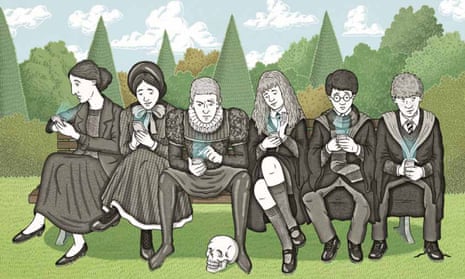Almost everyone, I think, has at least one friend who likes to relay enormously significant, life-altering news in a careless, after-the-fact way – “Did I not mention I left him?” It’s somehow maddening and endearing, the proportion of which is dependent on your personal tolerance levels. When we text, I don’t have to see your face or hear your voice when I flake out on plans 30 minutes before I’m supposed to show up; we can be our worst and most thoughtless selves with a minimum of fallout.
It was while brooding on this that I began to imagine text exchanges from various characters in literary history. Take Jane Eyre. Mr Rochester is an impulsive, intensely brooding, by turns romantic and terrifying figure; I’m convinced he is also the type of person who would regularly text in all caps and send message after message without waiting for a reply. Daisy Buchanan would not only text while driving; she would text you to come and pick her up after she totalled her car. And you’d do it, but you’d hate yourself the entire drive over.
The joke in each of these cases is not: wouldn’t it be funny if people in the past had phones, but, what is it about this format that allows these characters to be their truest, sometimes worst selves? The idea of King Lear having a phone in itself isn’t particularly funny, but a man as deeply insecure as Lear would be an absolute terror, were he able to get hold of anyone he wanted in the middle of the night, no matter how far they moved away from him. Think of the thousands of messages Heathcliff and Cathy would have flung back and forth to one another.
What makes so many of these literary characters compelling and memorable is the same thing that would make them terrible, impossible-to-live-with roommates, friends, employers, lovers and parents. They’re often treated with great seriousness; it’s more fun to refuse to do so.
Texts From Jane Eyre And Other Conversations With Your Favourite Literary Characters by Mallory Ortberg is published on 5 November by Corsair. Order a copy for £9.99 from the Guardian Bookshop

Comments (…)
Sign in or create your Guardian account to join the discussion